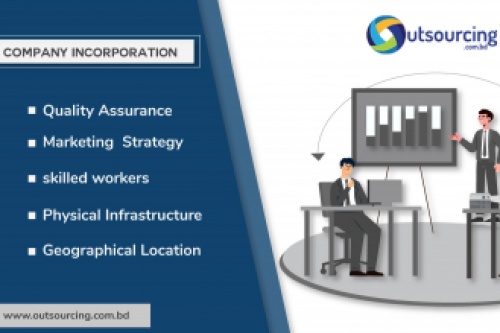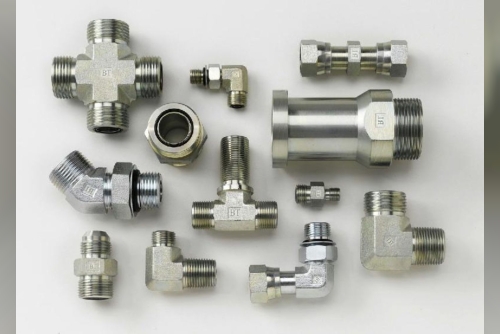Payroll responsibilities can easily overwhelm you as a business owner. There are multiple third-party solutions available to assist you.
When it comes to payroll, you have two choices: outsource payroll or in-house payroll. But you may not realize which is the right strategy for you.
As a payroll service provider, we are frequently asked, "What are the potential benefits of outsource payroll vs doing it in-house?"
Many companies choose to outsource the whole part of their payroll responsibilities. Whereas others handle it entirely in-house. Actually, your payroll strategy is decided by your company's size, growth plans, as well as other factors. Below, we discuss several scenarios to think about before deciding which would be best for your company.
So, without any delay, let’s start the discussion!
Observe The Scenarios When Choosing A Payroll Strategy
The choice between in-house and outsource payroll boils down to whether you choose to pay for the comfort and expert knowledge of a payroll service.
Or prefer to retain control over all payroll factors by doing it yourself. Here are some familiar scenarios for which one option is preferable.
Scenarios for outsource payroll
Difficult payrolls, multiple locations
Lack of a payroll specialist on staff
Businesses that are rapidly expanding
The company operates in multiple states.
Scenarios for in-house payroll
Small, single-location office (10 employees).
Requests for off-cycle payroll on a regular basis.
Only use contractors instead of salaried employees.
A payroll or human resources expert on staff.
Which One Is More Beneficial: In-house Vs. Outsource Payroll?
On the surface, there is only one significant difference between in-house and outsourced payroll. One is managed within your company by a team, whereas the other is outsourced to a firm that does it for you.
Aside from who manages your payroll, there are three main distinctions in how they do it - and it is all these distinctions that you must be aware of.
Total Costs
In-house: While maintaining your payroll in-house may be the more familiar option. It will require more effort and training to ensure that your staff is capable of handling the demands of payroll processing.
Outsource: An outsourcing payroll eliminates the costs of training payroll personnel, as your selected company will typically provide its own staff and techniques to take around your payroll services.
Data Safety
In-house: An in-house payroll system can protect your employees' personal information by limiting payroll access to only those who need it. This can assist in reducing the risk of data leakage.
Outsource: Companies outsource your payroll management involves finding a provider. In addition to having the techniques needed to run your payroll correctly, retains a secure network to store your employee information.
Payroll Flexibility
In-house: These are simple to change and manage because you have complete control over how it is distributed and can tailor it to your specific needs. Furthermore, you can handle employee salaries in-house.
Outsource: An outsourced payrolls are still flexible based on your company's needs. But you must find a sensitive provider with whom you can communicate freely when changes are required. If you find a good provider then outsource payroll is more flexible.
Global Payroll Service Breakdown In 2022
Payroll processing is frequently handled by the company's human resources or finance departments. You can also outsource the payroll by having to hire a third-party payroll service.
According to a global payroll operations survey, 33% of business owners use in-house payroll, while 27% completely outsource payroll processing. Furthermore, 40% of businesses host payroll on a third-party server but complete it in-house.
FAQs
Which is better outsourcing or in-house?
Ans: Outsourcing a project or a task can be less expensive than doing it in-house. It's especially cost-effective if you outsource to an individual from a low-cost-of-living country. Their hourly rates may be lower than those of your in-house team.
What is the difference between in-house and outsourcing?
Ans: What is the distinction between in-house and outsourced work? Outsourcing is the practice of contracting work to an outside company or contractor, whereas in-housing (also known as insourcing) is the exercise of allocating this work to existing employees.
Which is better outsourcing or insourcing?
Ans: Companies that outsource typically gain greater control over one ‘s decision-making as well as the ability to complete tasks quickly and precisely. When you outsource, you are far away from the people who work for you, making it difficult to track the quality of their work.
Conclusion
If you don't want to deal with the documentation, compliance, and tax issues that come with conducting your own payroll, payroll outsourcing can help.
However, if you want more authority over your payroll and have a trained team in place, it may be more beneficial to keep it in-house.
EicraSoft is one of Bangladesh’s leading payroll processing outsourcing companies, assisting businesses in more effectively managing their payrolls. We customize our plans to your company's needs, making companies outsource payrolls more affordable without sacrificing service quality.
https://www.eicra.com/blog/peo/best-for-your-company-in-house-vs-outsource-payroll
















